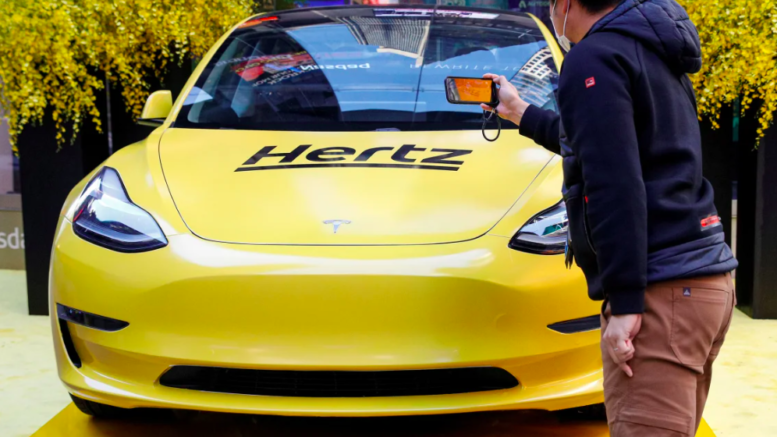Hertz, a company that has been actively incorporating electric vehicles (EVs) into its fleet, has decided to reduce its EV presence by selling approximately 20,000 electric cars, representing a third of its electric fleet. The move is driven by financial considerations, with Hertz facing challenges related to higher damage-repair costs and increased depreciation associated with electric vehicles.
Despite the lower maintenance costs of EVs, Hertz executives have cited issues such as collision and damage repairs being approximately twice as high for EVs compared to comparable combustion engine vehicles. Additionally, the depreciation of EVs has been impacted by the declining prices of new electric cars in the market, notably influenced by Tesla’s aggressive pricing strategy.
Hertz anticipates incurring a loss of around $245 million due to depreciation on its electric vehicles, averaging about $12,250 per vehicle, according to an SEC filing. Tesla constitutes approximately 80% of Hertz’s EV fleet, contributing significantly to the challenges faced by the company. The rapid depreciation of electric vehicles in the used car market is affecting rental car companies like Hertz, which rely on selling used vehicles as part of their business model.
One of the factors contributing to the challenges with Tesla vehicles is the relative newness of the company, resulting in a less mature supply network for replacement parts and trained repair technicians compared to more established automakers. Hertz executives highlighted the cost and time associated with repairs for Tesla vehicles, emphasizing the decades of establishment and aftermarket support that traditional automakers benefit from.
Hertz CEO Stephen Scherr pointed out that besides repair costs, electric vehicles, particularly Teslas, are more prone to crashes. The company is actively working with Tesla to enhance the performance of the cars and reduce the risk of damage incidents. The decision to sell a significant portion of its electric fleet underscores the complex financial dynamics and operational challenges associated with maintaining and selling electric vehicles in the rental car industry.

